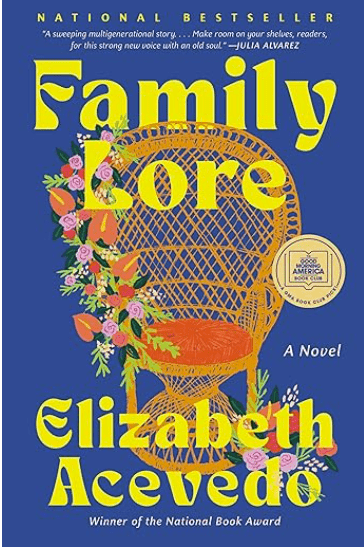
Apparently, our humorist is a wannabe lyricist; no doubt jealous that Bernie Taupin found Elton John, and Drew found, well, Marty. Tough luck, Drew. Confused? Read on.
As some readers of the FXBG Advance might already know, rapper Young Thug is being tried in an Atlanta court for a number of offenses that could include murder. As part of the prosecution, the District Attorney has entered some of the rapper’s lyrics into evidence as proof that Young Thug was living out the crimes memorialized in his lyrics.
To many artists and people with brains, this is understandably problematic.
(Side Note to Donald Trump and His Handlers—Young Thug is being prosecuted as a R.I.C.O case by District Attorney Fani T. Willis (D) who is also prosecuting Trump for election fraud claims in Georgia. If Trump can harness the energy of Young Thug’s fans in protesting the charges against the Atlanta-born rapper and yoke it to his own MAGA defenders, they would form quite an interesting collaborative group of protesters. Trump might want to avoid comparisons to Nelson Mandela and not trumpet the exploits of Robert E. Lee at Gettysburg, but this partnership could most definitely work in his favor. As Young Thug sings in “Relationship”: “I’m hidin’ in the closet, I’m hidin’ the dope, three mil’ in the room, You get silver spoon, I bought you some goons.” At Mar-A-Lago, Trump was hiding classified documents instead of dope, but if Young Thug is willing to loan him some of that three mil with goons to boot, then there is a deal to be made. As Young Thug said: “Money and clout are not the same thing. Make sure you get money, because clout don’t pay bills.” Truth.)
Prosecuting any artist based upon their lyrics or art seems like a legal strategy destined to fail spectacularly, but it does lead to some good YouTube clips when staid judges try to read the rap lyrics deadpan and without concern for the beats or line breaks.
Despite its many legal shortcomings, lyrics as evidence does lead to some conjecture about artists who may have escaped prosecution despite the obvious breadcrumbs in their songs.
In today’s performance, the role of District Attorney will be played by Humorist Drew Gallagher. With no consideration paid to statutes or realities, these are their stories.
“Bohemian Rhapsody”—Queen (1975). As Freddie Mercury readily admits to his mother at the minute mark of this classic, he confesses to killing a man by shooting him in the head. Mercury is obviously racked by guilt with shivers down his spine and his body aching all the time. He is warning his mother and his friends that he has to take responsibility for his actions, but something happened on his way to the police station, and Mercury never turned himself in and the dead man was never identified. It’s a crime that remains unsolved, and since Mercury died of HIV in 1991, it is likely to remain a cold case.
“Hey Joe”—Jimi Hendrix (1967). Sure, the song is about “Joe” killing someone, but Jimi also starts with a “J” so it’s not a stretch to think that Joe was an alias for Jimi. It’s possible that prosecutors never prosecuted Hendrix because he shot his wife who had cheated on him around town, and they found him to be a sympathetic figure. Jimi never clarifies how many men she cheated with, but it was all over town so probably more than one. Now Hendrix may have never been charged with the slaying because charging a musician for something they fictionalize in a song is ridiculous and lyrics as evidence are patently absurd, but further hindering any prosecution might have been the fact that Hendrix was never married so he never had an old lady to shoot down. Hendrix died in 1970, so it would be very difficult to prosecute this tenuous crime from beyond the grave.
“Stan” — Eminem (2000). At least Eminem is still alive for possible prosecution. Eminem has employed alter egos throughout his career (See: Slim Shady) but in this song the narrator Stan is writing to Slim Shady because the two are so much alike. Stanley’s pregnant girlfriend, however, doesn’t see the similarities and thinks that Stanley might need to give up on the unrequited friendship with his idol and concentrate on being a father to be. One major problem in prosecuting Eminem as Stan is that the girlfriend/victim who is shoved into the trunk and presumably dies when their car plunges off a bridge is the singer Dido. In 2003, three years after she would have died at Stan’s hands, Dido released “Life for Rent” which is proof that she was alive, and the only thing angelic about her was her voice.
“Folsom Prison Blues” — Johnny Cash (1953). Cash admits that he’s in prison for shooting a man in Reno because he just wanted to watch him die. Cold-blooded. There are pages online devoted to if Cash really shot someone (he did not) and why he chose Reno as the city where the supposed murder took place (my guess is syllables and possible rhyme scheme and not train schedules which some online sleuths go into great detail about). Cash did have some run-ins with the law, but those were generally misdemeanors for drugs, public drunkenness, or picking flowers out of a garden which did get him a night in jail, but would have made for a much tamer lyric for this classic by The Man in Black.
“Killing Me Softly with His Song” — Lori Lieberman (1971). There is an inherent problem with prosecuting this song/crime because there is no body. Lieberman, who originally released the song, is still alive and Roberta Flack, whose cover is better known, is also fortunately still among the living. Now one could argue that “killing me softly” also means slowly, and therefore, this has been a gradual type of poisoning that has spanned 53 years. The perpetrator is referenced in the lyrics as a young boy who would likely be younger than both Lieberman and Flack but would also need occasional access to both women. The Fugees also covered this song but Lauryn Hill, Pras, and Wyclef Jean are all still alive which may lead prosecutors into a dead end.
“Family Snapshot” — Peter Gabriel (1980). Many still believe that Lee Harvey Oswald did not act alone in the assassination of President John F. Kennedy in 1963, and this song seems to show in exacting detail that Gabriel may have been a second triggerman on that infamous day in Dallas. That theory, like many about the assassination, loses any momentum though when a number of factors are considered, including the fact that Gabriel was only 13 at the time and that the English-born Gabriel did not make his first visit to the United States until 1972 as the lead singer of Genesis for a show in Boston. We know that the grassy knoll was present at the time of the assassination. We also know that an adolescent Peter Gabriel was not.
“Maxwell Silver Hammer” — The Beatles (1969). Was Paul Dead? Screw that, was Paul a serial killer???? This toe tapper has some of the darkest lyrics the Beatles ever offered to the world. Sure, the duel between Dan and Rocky Raccoon sheds light on the hazards of gun play at hoe downs, but Maxwell killed at least three victims in England with his dreaded silver hammer. I’m not sure that anyone thought to trace McCartney’s whereabouts during Maxwell’s crime spree, but when Maxwell killed the judge presiding over his case, it stands to reason that all those witnesses might have recognized the Cute Beatle as the murderer. One theory that has not been fully explored: Was it really Yoko that broke up the Beatles or did Paul’s legal troubles, as the murdering Maxwell, keep him from touring and recording? We do know the walrus was Paul.
(Silver hammers are one of the few items you cannot buy at The Card Cellar located at 915 Caroline Street. However, you are sure to find a number of items for Hammerin’ Hank Aaron from the sponsor of this very column. Just tell them Humor sent you. Actually, that might be a little confusing so don’t say that.)

As some readers of the FXBG Advance might already know, rapper Young Thug is being tried in an Atlanta court for a number of offenses that could include murder. As part of the prosecution, the District Attorney has entered some of the rapper’s lyrics into evidence as proof that Young Thug was living out the crimes memorialized in his lyrics.
To many artists and people with brains, this is understandably problematic.
(Side Note to Donald Trump and His Handlers—Young Thug is being prosecuted as a R.I.C.O case by District Attorney Fani T. Willis (D) who is also prosecuting Trump for election fraud claims in Georgia. If Trump can harness the energy of Young Thug’s fans in protesting the charges against the Atlanta-born rapper and yoke it to his own MAGA defenders, they would form quite an interesting collaborative group of protesters. Trump might want to avoid comparisons to Nelson Mandela and not trumpet the exploits of Robert E. Lee at Gettysburg, but this partnership could most definitely work in his favor. As Young Thug sings in “Relationship”: “I’m hidin’ in the closet, I’m hidin’ the dope, three mil’ in the room, You get silver spoon, I bought you some goons.” At Mar-A-Lago, Trump was hiding classified documents instead of dope, but if Young Thug is willing to loan him some of that three mil with goons to boot, then there is a deal to be made. As Young Thug said: “Money and clout are not the same thing. Make sure you get money, because clout don’t pay bills.” Truth.)
Prosecuting any artist based upon their lyrics or art seems like a legal strategy destined to fail spectacularly, but it does lead to some good YouTube clips when staid judges try to read the rap lyrics deadpan and without concern for the beats or line breaks.
Despite its many legal shortcomings, lyrics as evidence does lead to some conjecture about artists who may have escaped prosecution despite the obvious breadcrumbs in their songs.
In today’s performance, the role of District Attorney will be played by Humorist Drew Gallagher. With no consideration paid to statutes or realities, these are their stories.
“Bohemian Rhapsody”—Queen (1975). As Freddie Mercury readily admits to his mother at the minute mark of this classic, he confesses to killing a man by shooting him in the head. Mercury is obviously racked by guilt with shivers down his spine and his body aching all the time. He is warning his mother and his friends that he has to take responsibility for his actions, but something happened on his way to the police station, and Mercury never turned himself in and the dead man was never identified. It’s a crime that remains unsolved, and since Mercury died of HIV in 1991, it is likely to remain a cold case.
“Hey Joe”—Jimi Hendrix (1967). Sure, the song is about “Joe” killing someone, but Jimi also starts with a “J” so it’s not a stretch to think that Joe was an alias for Jimi. It’s possible that prosecutors never prosecuted Hendrix because he shot his wife who had cheated on him around town, and they found him to be a sympathetic figure. Jimi never clarifies how many men she cheated with, but it was all over town so probably more than one. Now Hendrix may have never been charged with the slaying because charging a musician for something they fictionalize in a song is ridiculous and lyrics as evidence are patently absurd, but further hindering any prosecution might have been the fact that Hendrix was never married so he never had an old lady to shoot down. Hendrix died in 1970, so it would be very difficult to prosecute this tenuous crime from beyond the grave.
“Stan” — Eminem (2000). At least Eminem is still alive for possible prosecution. Eminem has employed alter egos throughout his career (See: Slim Shady) but in this song the narrator Stan is writing to Slim Shady because the two are so much alike. Stanley’s pregnant girlfriend, however, doesn’t see the similarities and thinks that Stanley might need to give up on the unrequited friendship with his idol and concentrate on being a father to be. One major problem in prosecuting Eminem as Stan is that the girlfriend/victim who is shoved into the trunk and presumably dies when their car plunges off a bridge is the singer Dido. In 2003, three years after she would have died at Stan’s hands, Dido released “Life for Rent” which is proof that she was alive, and the only thing angelic about her was her voice.
“Folsom Prison Blues” — Johnny Cash (1953). Cash admits that he’s in prison for shooting a man in Reno because he just wanted to watch him die. Cold-blooded. There are pages online devoted to if Cash really shot someone (he did not) and why he chose Reno as the city where the supposed murder took place (my guess is syllables and possible rhyme scheme and not train schedules which some online sleuths go into great detail about). Cash did have some run-ins with the law, but those were generally misdemeanors for drugs, public drunkenness, or picking flowers out of a garden which did get him a night in jail, but would have made for a much tamer lyric for this classic by The Man in Black.
“Killing Me Softly with His Song” — Lori Lieberman (1971). There is an inherent problem with prosecuting this song/crime because there is no body. Lieberman, who originally released the song, is still alive and Roberta Flack, whose cover is better known, is also fortunately still among the living. Now one could argue that “killing me softly” also means slowly, and therefore, this has been a gradual type of poisoning that has spanned 53 years. The perpetrator is referenced in the lyrics as a young boy who would likely be younger than both Lieberman and Flack but would also need occasional access to both women. The Fugees also covered this song but Lauryn Hill, Pras, and Wyclef Jean are all still alive which may lead prosecutors into a dead end.
“Family Snapshot” — Peter Gabriel (1980). Many still believe that Lee Harvey Oswald did not act alone in the assassination of President John F. Kennedy in 1963, and this song seems to show in exacting detail that Gabriel may have been a second triggerman on that infamous day in Dallas. That theory, like many about the assassination, loses any momentum though when a number of factors are considered, including the fact that Gabriel was only 13 at the time and that the English-born Gabriel did not make his first visit to the United States until 1972 as the lead singer of Genesis for a show in Boston. We know that the grassy knoll was present at the time of the assassination. We also know that an adolescent Peter Gabriel was not.
“Maxwell Silver Hammer” — The Beatles (1969). Was Paul Dead? Screw that, was Paul a serial killer???? This toe tapper has some of the darkest lyrics the Beatles ever offered to the world. Sure, the duel between Dan and Rocky Raccoon sheds light on the hazards of gun play at hoe downs, but Maxwell killed at least three victims in England with his dreaded silver hammer. I’m not sure that anyone thought to trace McCartney’s whereabouts during Maxwell’s crime spree, but when Maxwell killed the judge presiding over his case, it stands to reason that all those witnesses might have recognized the Cute Beatle as the murderer. One theory that has not been fully explored: Was it really Yoko that broke up the Beatles or did Paul’s legal troubles, as the murdering Maxwell, keep him from touring and recording? We do know the walrus was Paul.
(Silver hammers are one of the few items you cannot buy at The Card Cellar located at 915 Caroline Street. However, you are sure to find a number of items for Hammerin’ Hank Aaron from the sponsor of this very column. Just tell them Humor sent you. Actually, that might be a little confusing so don’t say that.)

Local Obituaries
To view local obituaries or to send a note to family and loved ones, please visit our website at the link that follows.

Support Award-winning, Locally Focused Journalism

In less than a year, FXBG Advance has become the news leader in Fredericksburg, Spotsylvania, and Stafford through its innovative mix of:
- Investigative Reporting: From schools and elections to healthcare and local government, the Advance is exposing news that others cannot, or will not, tackle.
- Education and Political Reporting: Adele Uphaus is considered the finest education writer in our region, and among the best in the commonwealth. Martin Davis brings more than 20 years of political reporting to our region.
- Analysis and Commentary: No other publication delivers incisive writing about the issues that drive our region, shaping public debate and igniting the public square. Martin Davis has been recognized for superior editorial writing in Virginia, while Shaun Kenney is a state-level writer recognized from Caroline Street to the interior of the Governor’s Mansion.
- New Dominion Podcast: Each week, Davis and Kenney partner with Cori Blanche and Megan Samples to bring you lively debate on the week’s issues, interviews with the region’s leading figures, and the best book discussions in the area.
We depend upon your support to grow and strengthen our newsroom. For the cost of a cup of coffee and a bear claw each month, you can help underwrite the most respected and admired news team in the region.
SUBSCRIBE NOW AT $8 a month/$80 a year/$500 to become a Founding Member. As a thank you, members receive occasional original pieces from our writing team, and invitations to special events.





